The Sound Architect speaks to Pasi Pitkanen, sound designer for Rovio. We discuss his career path, gain some advice on what to do to get into the industry as well as discuss his future plans. Pasi founded the Audio Spotlight with Zdravko Djordjević, where they also interview audio professionals within the industry.
How did your career in audio begin?
It began as a hobby in the late 90’s. I picked up a copy of Scream Tracker software and started composing music to games that utilized its file format (.s3m). My friends and I played games like ‘V-wing’ and ‘Wings’ a lot so at some point I just started composing music to them.
I continued composing music with various tracker software and eventually picked up a copy of Reason as well. I think I spent around three years with Reason and then finally bought Cubase. At this point I started to compose orchestral music. I knew nothing of orchestration (and still don’t) but I just went with a ‘feelings first’ attitude. I composed songs in different styles, shared them online and tried to get some gigs as a composer for films and TV. Finally, I managed to get a good amount of composing gigs for short films.
Then I realised I wanted to greatly improve my skills in mixing and mastering, so I applied to ‘Digital Sound and Commercial Music’ degree programme in Tampere University of Applied Sciences. During the first two years there I gained a lot of new skills, knowhow and experience with recording, manipulating, mixing and mastering various audio content for films, games, advertisement etc. The first two years also helped me to get the spark for sound design, gain confidence and finally apply to study game audio abroad.
For the third year I spent the whole year studying ‘Creative Sound Production’ at University of Abertay Dundee, Scotland. I had always wanted to visit Scotland and this was my last chance. I did not know that Dundee was one of the active hubs of the UK’s game industry but after first two weeks at the University I realised this and knew that I had made the right choice. The courses I took in ‘Creative Sound Production’ greatly improved my craftsmanship in the field of sound design, game audio and also gave me valuable knowledge of the game development process itself.
While I was finishing my studies in Scotland, my friends and I applied and got in to a video games development competition called ‘Dare to be Digital’. During the competition we had mentors coming in weekly and give us feedback on our game ‘Gravtech’. These mentors came from big companies like Ubisoft, Codemasters etc. This competition was a once in a lifetime experience and I am really glad that I had the chance to take part in it.
It was during Dare to be Digital when I applied to the Sound Designer spot at Rovio Entertainment Ltd. I was really surprised and ecstatic when I got the job, so after the competition I moved back to Finland and started working at Rovio.
Currently living the dream. 🙂
What project are you most proud of so far?
It is really hard to pick one. In some strange way all of the projects that I have worked on have had these proud moments in them that I reminisce from time to time.
What project has been your most challenging so far?
The project that has been most challenging to me so far was a TIGA award-winning game called ‘Gravtech’ that my friends and I developed during the Dare to be Digital competition. We had 8½ weeks to make the game and everything had to be made from scratch. It was really challenging and fun at the same time to create all the sound effects and music for the game.
For example, I needed some stone hits and scrape sounds, so I “borrowed” some rocks from the streets of Dundee and went to the studio to record them for 3-4 hours. The next day I took one of the boots from our programmer and recorded that because it sounded perfect for the footsteps I was after. It was a smelly but fun day! 🙂
What would be your dream project to work on?
I am a huge fan of the Civilization games (over 200 playing hours clocked for Civ5 alone on Steam) so I would love to make sound effects for the games of this franchise. I can already see myself recording old weapons, instruments and objects for these games.
Do you prefer composition or sound design?
I started my career by composing music and now that I have delved more into sound design I can say that I prefer it over composition. Then again I sometimes use musical elements in my sound design so I guess they go hand in hand occasionally.
Is there something that you’ve designed/written so far that you hold dearest?
The background ambience of the ‘Cosmic Crystals’ episode for Angry Birds Space. The team and I talked about the atmosphere of the episode and decided to go with an atmosphere that was relaxing, ethereal and had hints of 80’s magic in it. I think I managed to convey these things in the ambience. Check it out and let me know if I did not. 😉
Do you prefer working on Film, TV or Games?
I definitely prefer working on games. I especially like the nonlinearity and interactivity aspects that games have and what we can still achieve there. The game industry is still young and I can’t wait to see what we can do audio wise in 5 years or so.
What software do you use?
I have a fairly simple setup. My main DAW is Cubase 6.5. Cubase was one of the first DAW’s that I used and I just got accustomed to it. I have also used Pro Tools and Logic a lot but I keep going back to Cubase because it just fits perfectly with my way of working.
I also use Adobe Audition CS6 for various audio tasks but mainly I tend to use the Spectral Frequency Display when I need to clean excess noise, clicks and pops from recordings that I have done.
Any go-to plug-ins?
My go-to reverb is ValhallaRoom by ValhallaDSP. It is just amazing how versatile, great sounding and easy to use it is. It also comes with a good set of presets, and I have to say that the presets made by Den are just phenomenal!
When it comes to mixing and mastering my sounds, I regularly use Fabfilter’s Pro Bundle, which consists of an equalizer (Pro-Q), compressor (Pro-C), limiter (Pro-L), gate/expander (Pro-G) and de-esser (Pro-DS). I discovered these plug-ins a couple of years ago and they instantly became part of my workflow. They sound great, are easy to use and they look gorgeous too!
What’s your usual process?
First, I always try to get as much material as I can from the rest of the team and go through it thoroughly. Game design documents, early concept art, rough animations and even playable builds really help me to get inside a project and start the audio design process.
Next, I start writing the audio design document, create the first version of the audio asset list and have meetings with the rest of the team. I like to prioritize / tag my sounds into low, medium and high categories. Audio assets that have the high priority tag are the most important sounds in the project. For me these are sounds that are connected to main gameplay elements and sounds that the player would hear often in the game. Audio assets that have the low priority tag are mostly sounds that support the main gameplay and at the same time maintain the atmosphere / mood of the game. This kind of prioritizing method helps me to plan my recording schedule for the sounds and it also enables the rest of the team to see what I am doing and when.
When everything is planned and scheduled properly I continue writing the audio design document and eventually start recording raw material for the project. I always record extra takes for each sound event in the project, so I can easily create variations of the sound if needed.
When I am done with the recordings I start my editing process by making copies of all the recordings and backing them up to a hard drive / secure server. It is always a good thing to work with a copy of the audio file instead of the original, so you won’t accidentally lose it. My usual workflow for editing is the following. I open up one of the recordings, separate the useable audio content, delete the unnecessary content and then organize the sounds within the Cubase session. I like to keep things very organized, so I make use of the folder function and group similar files under the same folder.
Then I start the design process where I usually layer multiple sound sources together and manipulate the sounds by running them through various plug-ins and VST’s. I tend to follow the KIS rule (Keep It Simple) and so far it has worked like a charm. If I have time I always try to utilize as much of my own recordings as possible but sometimes you just have to bring in sound sources from commercial libraries. 🙂
I tend to mix my sounds while I am designing them as well so in a sense I don’t have a separate mixing phase in my workflow. This kind of way of working works for me at least..haha
What advice would you give you aspiring composers and sound designers who want to work in the games industry?
I don’t know if I am the right person to give any advice but all I can say is that practise your craft everyday in one form or another. Just keep pushing yourself out of your comfort zone because that is where you learn new and exciting things. Read books, articles and other written material related to game audio.
As for how to get work in the games industry, all I can say is that you have to be active at the same time you are practising your craft. Here are some websites, forums and conferences that have helped and still help me to get better in game audio. The learning never stops. 🙂
Websites:
The Audio Spotlight http://theaudiospotlight.com/news/game-audio-news/
Designing Sound http://designingsound.org/tag/game-audio/
Game Audio 101 http://www.gameaudio101.com/
Game Audio Podcast http://www.gameaudiopodcast.com/
Books:
Game Audio Books http://theaudiospotlight.com/books/game-audio-books/list-of-game-audio-books/
Forums:
Game Audio Forum http://www.gameaudioforum.com/
Gamedev.net http://www.gamedev.net/
Conferences:
Game Developers Conference USA http://www.gdconf.com/
Game Developers Conference Europe http://www.gdceurope.com/
AES Audio for Games http://www.audioforgames.net/
GameSoundCon http://www.gamesoundcon.com/
Any major Do’s and Don’ts?
DO
Do remember to keep your recorder with you at all times.
Do everything you can to evangelize the importance of audio in games.
DON’T
Don’t promise something that you can’t deliver 100%.
Don’t ever stop learning your craft.
What lies in the future for you now?
I will continue working on the games that we have in the pipeline at the moment while trying to self-study and keep up-to-date with all things related to game audio. Also I will keep on improving and posting interesting stuff to The Audio Spotlight website that my friend Zdravko Djordjević and I founded a bit over a year ago.
What else…I have also thought of doing an ambient album of some kind. The main idea is to record a lot of exciting organic sound sources and then manipulate, layer and design them to make some cool ambient music. At least that is the rough idea at the moment.. 😀
I guess this is a good time to end my ramble. Kudos to the readers who managed to make it this far!
Go forth and record! 🙂
Pasi is a fantastic source of audio knowledge and we hope to speak more with him in the future. His official site is http://www.pasipitkanen.fi/ where you can see some of his work. As we said before Pasi also co-runs the site http://theaudiospotlight.com/ which is definitely worth a look. In fact, they also interviewed our very own Sam Hughes right here:


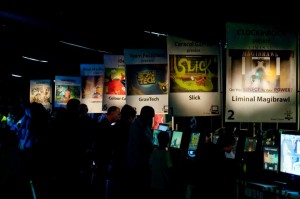
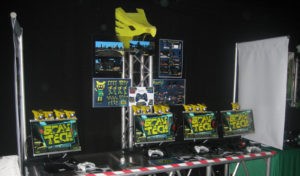
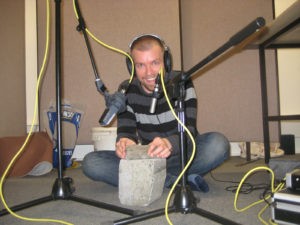
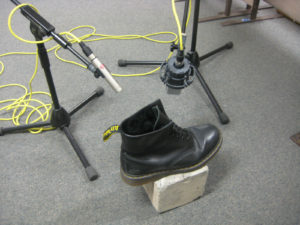
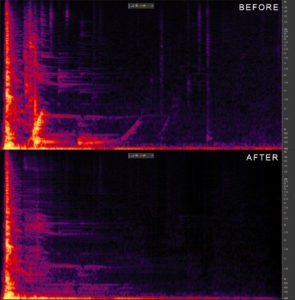
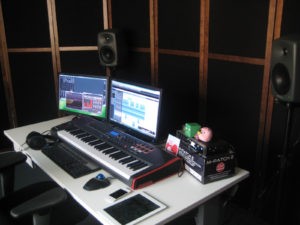
Excellent interview. Whatever happened to Ari Pulkkinen though?
Honestly not sure George, thanks for reading though! Don’t forget to follow us on Twitter and Facebook using the buttons in the top right!